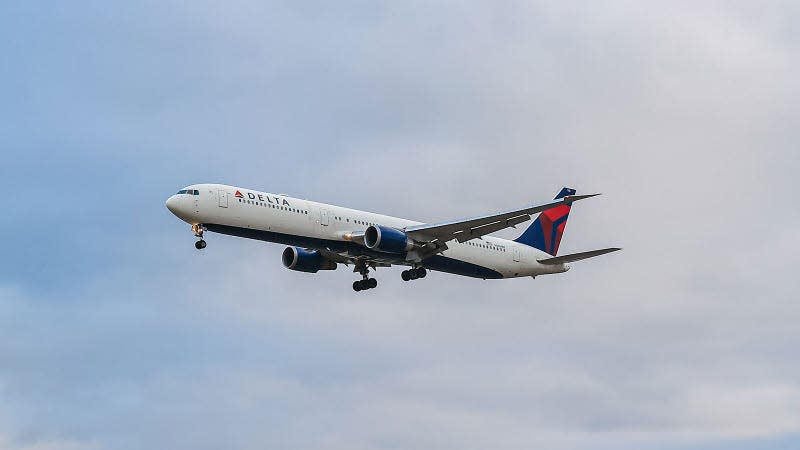Hail The Size Of Tennis Balls Rips Through Wing, Nose Of New York-Bound Flight

The Delta Boeing 767 was flying from Milan to New York.
We’ve all suffered on flights that were hit by bad weather, right? Whether it’s delays to takeoff because of excessive rain or high winds leading to a bumpy landing, it can be an awkward experience for everyone involved. But as the climate gets crazier, so too does the interaction between planes and freak weather, as one flight from Milan to New York found when it was hit by a mad hailstorm.
According to AP News, Delta Airlines flight DL185 took off from Milan’s Malpensa airport on Monday. Shortly after takeoff, the “packed passenger plane” passed through severe storms, which were caused by cold air from the Alps hitting “exceptionally warm air” that covered most of Southern Europe.
Read more
While the Boeing 767 jet was climbing through the storm, the plane was struck by ‘tennis ball-sized’ hail that damaged its nose, wings and parts of the engine. As a result of the damage, the plane was forced into an emergency landing at Rome’s Leonardo da Vinci International Airport. Nobody was injured during the ordeal.
il volo #DL185 decollato da #Milano #Malpensa diretto a #NewYork Jfk è atterrato a Roma Fiumicino dopo aver dichiarato emergenza salendo in quota, una forte grandinata ha danneggiato varie componenti#meteo #avgeek #maltempo #squawk7000 #hail #aviation pic.twitter.com/00StVGX3mH
— Vola Milano Malpensa [MXP] (@VolaMalpensa) July 24, 2023
In photos shared across /Twitter/ X, or whatever it’s called now, you can see that the plane’s nose was smashed in and its paint ripped off. Further back, there are holes in the wings of the plane as a result of the hail strikes, and the inlet on the engine appears to be damaged as well.
In a statement shared by Delta, the airline said: “The flight landed safely and passengers deplaned normally. The aircraft sustained some damage during the bad weather which is being reviewed by our local maintenance team.”
Delta has so far not confirmed how many passengers were onboard the flight, or when they were able to take an alternative flight out to New York.
More from Jalopnik
Sign up for Jalopnik's Newsletter. For the latest news, Facebook, Twitter and Instagram.

 Yahoo Autos
Yahoo Autos 